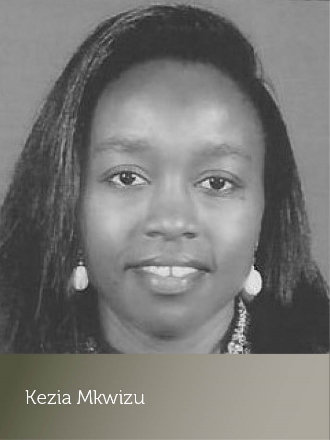Primarily using citation metrics can marginalise knowledge in developing countries. We hear from Dr Kezia H Mkwizu and Dr Janet C Kimeto on their experience of metrics, their limitations and opportunities.
Dr Kezia H Mkwizu, The Open University of Tanzania

Knowledge exchange can be marginalised in developing countries where systems offer limited opportunities to open access (OA) publishing or under-utilise citation metrics. Researchers that do not publish OA due to expensive fees by high tier journals end up using the closest publication method and this means their research is not freely accessible to the world. In Africa, some websites of local academic journals do not have citation metrics hence researchers are not able to evaluate the research impact within the academic and non-academic space.
In my experience, reputable journals (those with high impact factors and citation metrics) take longer to publish articles, and even if articles are initially accepted, they can be rejected at a later stage on the grounds of backlog or lack of funds to sustain platinum OA journals. Inevitably, this deprives the knowledge exchange to intended users. Surprisingly, the greatest lesson from the COVID-19 pandemic has shown that rapid OA publication is the future so that knowledge exchange can be impactful to society at large.
Some of the existing barriers I have seen include researchers being pressured to publish in high impact and reputable journals, while emerging journals suffer from stagnation and low citation. Researchers should be given the freedom to publish where they see fit.
In the past five years, there has been a rise of OA and a surge in issues per volume by some journals to facilitate more publication thus indirectly increasing the research output and ultimately the knowledge exchange in developing countries. But at a holistic level, developing countries need to establish and strengthen reputable journals of their own and provide support to young researchers in funding OA publications.
One change l would like to see in the publishing sector is inclusiveness of emerging journals. It is important that emerging journals co-exist with reputable journals so that young researchers can gain easy entry into the publication world at an early stage. Inclusiveness will assist the exchange of knowledge in a fair manner. Additionally, journals should aim to incorporate citation metrics to increase the research impact of published articles. The world is a village and OA publication is the future for knowledge exchange not just for developing countries but the globe.
It is important that emerging journals co-exist with reputable journals so that young researchers can gain easy entry into the publication world at an early stage. Inclusiveness will assist the exchange of knowledge in a fair manner
Dr Janet C Kimeto, University of Kabianga

Both bibliometric and alternative metrics apply in developing countries, though most people in Africa consider the value of their work in the list of the output and the indication of peer recognition such as awards, consultancies, delivery of keynotes as oppose to citation count.
Over the past few years, there has been more acceptance of alternative metrics; this has been achieved due to its societal impact. When using alternative metrics, the researcher must provide additional information including when it was downloaded, the number of times it has been downloaded, comments from other researchers, which countries are looking for it etc. By doing citing this way, it is a positive for research evaluation as it supplements the traditional article counts and journal impact measures.
I’ve personally experienced the value of alternative metrics when one of my papers was published in a local newspaper due to the impact the research could have on society. This article attracted lots of comments on its impact, so I believe the research may still be cited in the future, compared to having the paper go through a lengthy peer review process.
I have found that few people in Africa, even in academia, take the time to read peer reviewed publications or journals, unless they are students at Masters/PhD level and require the reading as it related to their field. These publications or journals only benefit a few who dare to read them, thus leading to low scholarly impact.
Another barrier is that the norm of researchers preferring the established authors with a high profile in academia means that new researchers in academia lag behind, even after publishing in peer reviewed journals. Whereas alternative metrics gives researchers who have less visibility a boost to their profile.
Looking ahead, I think that there are a few things that need to change. Firstly, publications should be all inclusive; citation-based research metrics should aim to impactful within and outside the scholarly community.
Secondly, academia should change their teaching culture by reading current journals and books in their fields. This will enable scholars to acquire new and current knowledge and skills for their teaching.
Finally, we need to remove the term 'publish or perish'. Researchers should aim at flourishing in quality research and not quantity as it is mostly associated with metrics. Let it be the norm to focus on research quality not quantity.
Let us always focus on research quality and not quantity

Fairer society
We are passionate about working with researchers globally to deliver a fairer, more inclusive society. This perhaps has never been more important than in today’s divided world.

Join the conversation
Please ask any questions, add your opinion or simply share your thoughts. Report a problem.